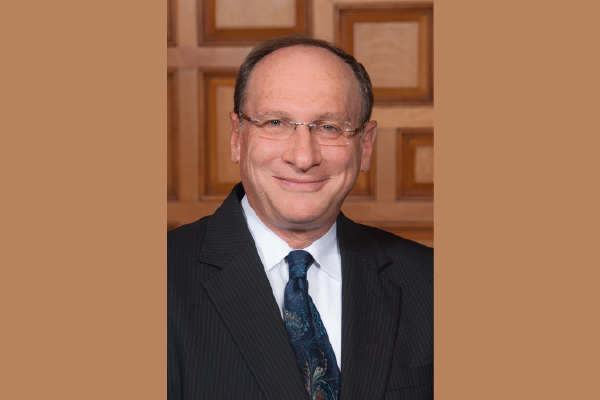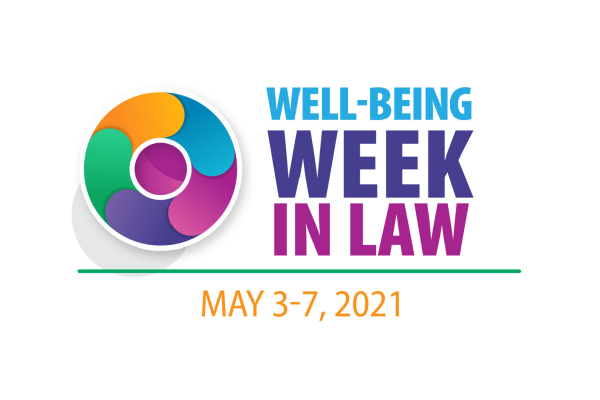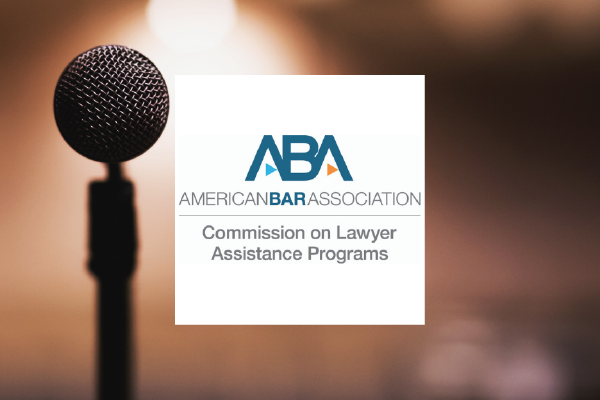Rachel Ramirez Gants, Chief Justice Gants’ daughter, accepted the posthumous honor on her father’s behalf in a virtual ceremony on November 11, 2020.
The American Bar Association’s Commission on Lawyer Assistance Programs posthumously honored Massachusetts Supreme Judicial Court Chief Justice Ralph D. Gants with a Certificate of Appreciation for Justices, in recognition of his Outstanding Contributions to the Advancement of Lawyer Well-Being and Promotion of Lawyer Assistance Programs. The award was presented during a ceremony as part of the 2020 National Conference on Lawyer Assistance Programs.
LCL MA Executive Director Anna Levine expressed the Commission’s appreciation for his history of actively supporting lawyer well-being, highlighting that in 2019, Chief Justice Gants introduced a resolution that was passed by the Conference of Chief Justices urging state and territorial bar admission authorities to remove questions from admission applications about mental health history. Anna noted that several states including New York changed their questions following that resolution specifically.
Chief Justice Gants’ daughter, Rachel Ramirez Gants, accepted the award on his behalf; she remarked:
“My dad would have been thrilled to receive this award. He believed in the power of the Commission to change the face of the legal profession, to make it more inclusive and more compassionate. He was particularly proud of the Commission’s work on three areas:
- Eliminating bias in the bar application,
- Reducing stigma for mental health support, and
- Promoting mentorship.
. . .
He believed in the power of the legal profession to reflect and to grow. He knew justice is a relay race. He dropped the baton and the rest of us need to pick it up.”
Rachel graduated from Harvard Law School in 2020, and she shared that prior to graduation, she had taken two years off from school to address a neurologic condition that caused sickness, depression, and anxiety — and was able to get better. As she explained,
“I’m going to be a great lawyer not in spite of but because the compassion, empathy, and strength I learned during my own struggle with mental and physical illness. Law students at all times, but especially now, should be empowered and guided, not penalized, for navigating difficult financial and health decisions. Decisions such as missing a credit card payment to pay the month’s grocery bill or deciding to take time off from law school to support family or to prioritize mental or physical health.”
Rachel shared that she was excited to see the progress discussed earlier in the conference program, but emphasized that more needs to be done, particularly as economic, mental health, and physical health challenges become increasingly common during the pandemic and recession. As Rachel so perfectly captured it, to “take the shame out of struggle”, state bars can make two transformative changes: Remove detailed credit history questions and eliminate detailed employment history questions. She urged state bars,
“Make a clear statement: No student will be denied admission because of their financial or health circumstances.”
Related:
Chief Justice Ralph D. Gants Access to Justice Fund (MBA)
Free & Confidential Consultations:
Lawyers, law students, and judges in Massachusetts can discuss concerns with a licensed therapist, law practice advisor, or both. Find more on scheduling here.




